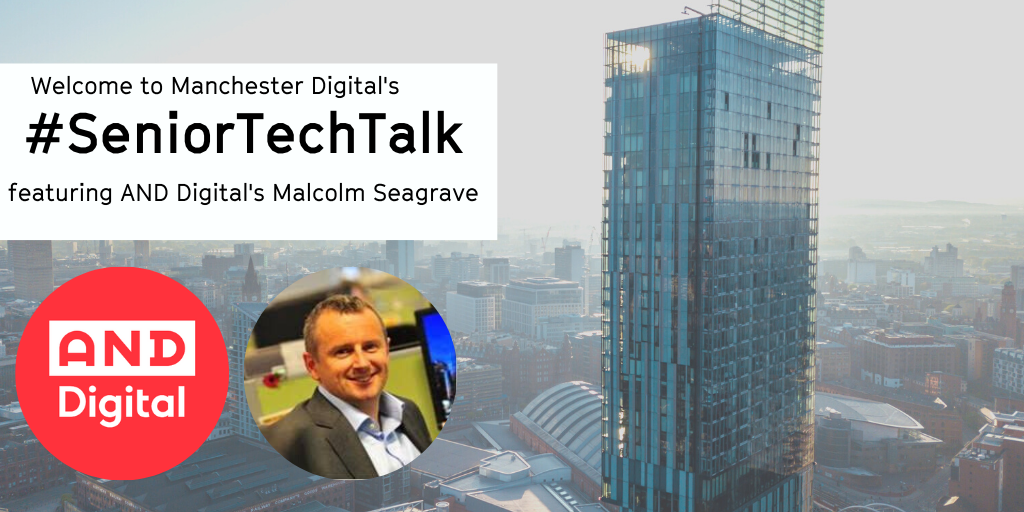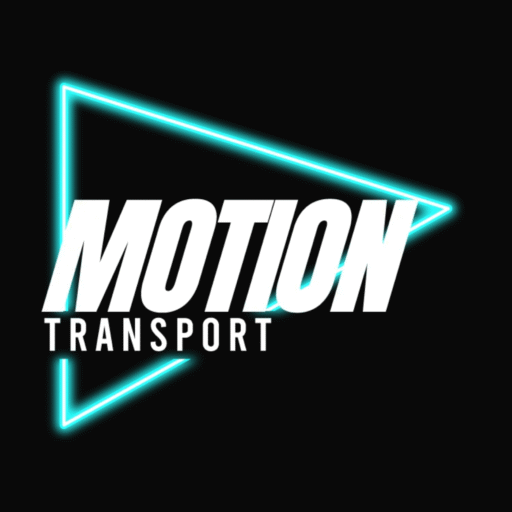
AND Digital is a fast growth tech company on a mission to close the world’s digital skills gap. As they’ve expanded into the North, we wanted to catch up with their Club Executive, Malcolm Seagrave to find out what makes AND different, learn about their people-first approach and hear their ambitious plans for the next five years.
To start off, could you tell us about AND Digital and your goals as a business?
AND Digital works with organisations to accelerate the development of digital capabilities - that means helping organisations get more from both the tech they invest in, the digital products they build and the digital teams they create.
We’ve set a fairly rapid pace since we started five years ago. Last year, AND placed 9th in the Financial Times’ fastest-growing company in the UK, as well as 24th in Europe. When we started, we set ourselves a big goal to grow to more than 500 people by 2019. With a couple of months to go before the end of the year, we’re delighted to say that we’ve already surpassed this number.
Our mission is to close the world’s digital skills gap, which is obviously something that’s no mean feat. We need a lot of skilled people onboard to help us succeed, which is why this growth and the ongoing learning and development of our people is so important for AND.
We hit the first five years of our plan, and right now we’re in the final stages of shaping the next five years with goals that are equally as ambitious, if not more - but I'm confident we'll get there.
Brilliant, so what is your role within the organisation?

I joined AND around 18 months ago to help build a presence in the North - kicking things off in Manchester.
After quickly establishing AND in Manchester, we have now expanded across West Yorkshire and opened two new clubs in Leeds and Halifax. Now, our plan is to open more Clubs across the North, and in the UK as a whole, in response to demand for our services. Each Club is made up of 80-100 ANDis, which could easily mean something in the region of 1,200 tech and digital roles in the next five years.
Building AND’s presence in the region got off to an absolute flier. I couldn’t be happier that the work is resonating really well and we're in a strong place: we're hiring the right people, and we're working with great clients as well.
Cutting costs, innovation, or growth, what’s the driver that starts most digital transformation projects?
I think there's an element of all of them in there, but initial conversations start with growth and innovation - especially with clients that have serious sponsorship from their senior executives.
Many realise that not modernising their platforms inhibits their growth, in terms of working on legacy platforms, existing ways of working and digital capabilities. Often, they haven't invested in that part of the business because it's treated as a cost centre. So, when it comes to trying to move at pace, they realise they need to improve their digital capabilities, as well as their technology.
Upskilling and making our clients’ people more effective is another key driver for digital transformation. And I think that's the bit where AND Digital particularly stand out. We recently worked with a client who assumed we’d replace individuals - but we upskilled them instead. That team is now probably the highest performing element of their technology function.

What are the biggest barriers to transformation?
It’s key to have sponsorship from your senior management, as digital transformation has to have buy-in and support right from the top. You've also got to have suitable organisational structures in place, making sure you've got the right processes and leadership styles to support what is a complex process.
People sometimes have a misconception that transformation work involves replacing existing teams. In fact, with the majority of our clients, we end up both moving their teams to the right place from a digital perspective, and creating new roles as we start to unlock the value of digital and technology for that client.
I really enjoy the fact that, when I go into clients, I almost inevitably know I'm going to create jobs for that client and that region, as well as upskilling and making people’s work/life significantly better. That’s a big part of our transformation process here at AND.
With AND Digital now being ranked 15th best company to work for in the UK, the 3rd in the North in The Sunday Times, could you describe what makes your culture unique and why people want to work for you?
The key thing to us is we are genuinely a people-first organisation - so much so that appearing in the The Sunday Times Best Companies To Work For list is my number one KPI.
We have a view that if we do right by our people, they’ll do right by our clients and the numbers will look after themselves - and this genuinely works.
Where other companies are driven by sales, we focus on our people. In this respect, we’re very out of kilter with the rest of the marketplace and I'm proud of what we do in that space.
What emerging tech has the most transformative potential, and how do you integrate it into the work that you do?
This is an interesting question, because there's probably three or four different angles to this.
The one I'm going to call out is around cloud-based AI and machine learning. It’s potential has been massive for a while and regularly makes the tech headlines, but it’s only recently have we have really begun to see the computational power, scalability and practical use cases emerge that mean it can become something of use for a wide variety of businesses, not just a few.
There's a lot of constraints because, to do it properly, you've really got to unpick the data. This means improving its quality, normalising and opening it up, linking it and so forth.
To be able to unlock this potential for our clients, there is no escaping the groundwork, ensuring that organisations have:
The right people, in the right place and at the right time - not easy when AI and machine learning is still very much an emerging skill set as much as it is emerging tech.
Moving away from the traditional data and architecture monoliths most organisations are locked into.
There’s definitely a huge amount of return for clients, but there's lots of work to do to get to that stage where you’re ready to unlock it. Once an organisation accepts that quite radical change is essential, it’s easier to unlock the value that cloud-based AI and machine learning can bring.
And final question, what do you think the technology sector in Manchester will look like in 10 years time?
A number of cities across the North are now really investing in the technology sector, which is very exciting, and I think Manchester is currently leading on this.
The technology industry is already well-established already in Manchester, and its community is probably more joined up than most other major UK cities outside of London, so I see Manchester being front and centre.
I hope others cities in the North can work together and create something that's successful on a global scale. The momentum is there and organisations are already delivering great things within the community.
Overall, I'm excited about where we’ll be in ten years, because I don't think the technology sector is going to slow down any time soon - that particular snowball only ever really gathers speed.







